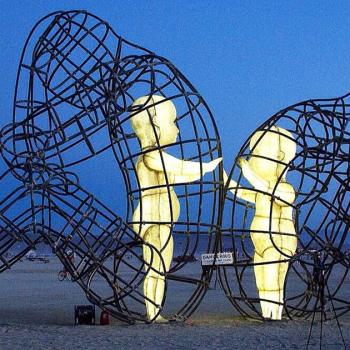
Inclusion is a high bar, asking each of us to accept a degree of discomfort when welcoming an inconvenient person. It’s a hard and sacrificial choice that is very rarely the modus operandi among social groups, which tend to form around commonality and avoid difference. Jesus addressed the issue in Luke 6:32-33
If you love those who love you, what credit is that to you? Even sinners love those who love them. And if you do good to those who are good to you, what credit is that to you? Even sinners do that.
He also addressed inclusion through the Parable of the Good Samaritan, where a Samaritan man acted with compassion towards his political and cultural enemy, while the victim’s own people walked on by out of fear. He included the inconvenient person, offering them compassion and mercy.
Let’s begin with the assumption, then, that inclusion only applies when the person in question is in some way inconvenient to us. Not because there’s something inherently wrong with them, but perhaps there is something about their background, beliefs, appearance, attitude, or personality that rubs you or I the wrong way. We’re talking about someone who doesn’t easily or comfortably fit in our social groups, or group of friends at work or at church. Jesus’ words make it clear that there is no credit to be taken from loving those who are good to us, convenient, add something tangible that we value, or are our friends. We are only talking about how we respond to the inconvenient person.
Why is exclusion the easier route?
There is an unfortunate tendency among human beings to form in-groups and out-groups, because if we can form an in-group, and know that we are a fundamental part of it, then we’re not alone. That group then becomes a matter of personal identity, and anything that might alter it in any way is perceived as a threat. Once the core members of such a group have been established, walls are erected and a guard set at the gate, only allowing in those who would easily slide into place among them or bring an obvious benefit. This is a natural, evolutionary mechanism, but it’s also a sin. The exclusion of any person based on anything but a genuine threat (of violence or some other form of actual harm) is to exclude Jesus, who made it clear that our treatment of others is our treatment of him. Matthew 25: 41-45
Depart from me, you who are cursed, into the eternal fire prepared for the devil and his angels. For I was hungry and you gave me nothing to eat, I was thirsty and you gave me nothing to drink, I was a stranger and you did not invite me in, I needed clothes and you did not clothe me, I was ill and in prison and you did not look after me.”
‘They also will answer, “Lord, when did we see you hungry or thirsty or a stranger or needing clothes or ill or in prison, and did not help you?”
‘He will reply, “Truly I tell you, whatever you did not do for one of the least of these, you did not do for me.”
Whatever we do not do for ‘the least’ person, we do not do for him. The reverse is also true – when we include and love, especially when that love is costly, we include and love him. We need to take this literally.
Exclusivity doesn’t protect
Instinctively, most people will understand that exclusion is cruel. The person indulging in exclusive behaviour will hide behind dishonest reasons for what they’re doing to avoid looking in the mirror. The excuses are always thin, built upon unfair assumptions and interpretations of behaviour or speech without proper enquiry.
Ironically, exclusive behaviour fails to protect and instead breeds malcontent within the group. An exclusive group can only diminish, because eventually someone at the heart of things will become inconvenient, after which they easily become a target for further exclusion. Oxygen is sucked from the room until everyone is left gasping. Only new people can bring life back to such a group, but the kind of people the group would benefit from either won’t be convenient or won’t be interested, sensing the inward-looking mentality of those trying to include them.
Inclusivity has the opposite effect. It might look threatening to swing the door wide open and welcome others in, but the atmosphere created by such a choice is warm, inviting, and brings out the best in people. Personally, I love being in highly diverse groups of friends, socially, at work, and at church. Diversity is about much more than skin colour, ethnic origin, or belief. Diversity of personality, behavioural style, communicational preferences, hobbies, and interests arouses tremendous curiosity, provides opportunities to learn and grow, and greatly enriches every person involved. It might be counter-intuitive to welcome the inconvenient person, but there is blessing on the other side. At the very least, we can all learn to communicate with more consideration, to learn from each other, and to forge friendship groups based on more than convenience and commonality. An inclusive friendship group can only grow.
Shifting the dial
How do you feel about your friendship groups? Are you guarded and fearful of change? How do you feel when someone is excluded? Do you stand up for them or stay silent? Remember, whatever you did not do for ‘the least’ individual, you did not do for Jesus. This is a challenge for all of us. Lord, help us bring down our barriers and embrace difference in others. Let us learn more deeply from each other, and embrace a broader expression of love and friendship. Where we have acted cruelly, help us to repent and open our arms. Please draw our gaze to the person or people you want us to include, and give us the courage to take the first step.













